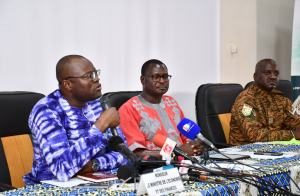Mali: Strategies put in place to meet the challenges of devastating floods

Mali, hit by unprecedented flooding, has showcased its resilience and ability to respond swiftly to crises. Under the leadership of Colonel Assimi Goïta, the government quickly declared a national disaster, marking a crucial turning point in managing the crisis that has thrust the country into a state of emergency.
This declaration, made during an extraordinary Council of Ministers meeting on August 23, 2024, underscores the severity of the situation and the government’s commitment to protecting and supporting affected communities.
The numbers are staggering: 17 regions and the District of Bamako have been impacted, with 122 flooding incidents affecting over 7,000 households, representing 47,374 people.
In the face of these dramatic human and material losses, the Malian government responded with speed and efficiency.
The Gao region, the hardest hit, alone accounts for 9,936 displaced individuals, while the entire nation mourns 30 deaths and reports 104 injuries.
Recognizing the urgency, the government activated the Crisis Coordination and Management Center on June 1, 2024, under the Ministry of Security and Civil Protection.
This mechanism enabled rapid intervention, including the distribution of 128.595 million CFA francs to the most vulnerable families and the temporary relocation of 903 households into schools.
Additionally, the President of the Transition ordered the mobilization of 4 billion CFA francs to bolster the national food security stock and provide immediate assistance to displaced households.
This decision reflects the Malian State’s unwavering commitment to supporting its citizens during these challenging times.
These swift and decisive actions demonstrate the Malian authorities’ determination to confront this natural disaster with strength and solidarity.
However, the journey ahead remains long as the country works to meet the immense needs of those affected and to enhance its resilience against climate challenges.
The Malian State has set the course, but overcoming this crisis will require the collaboration of all.
Titi KEITA












